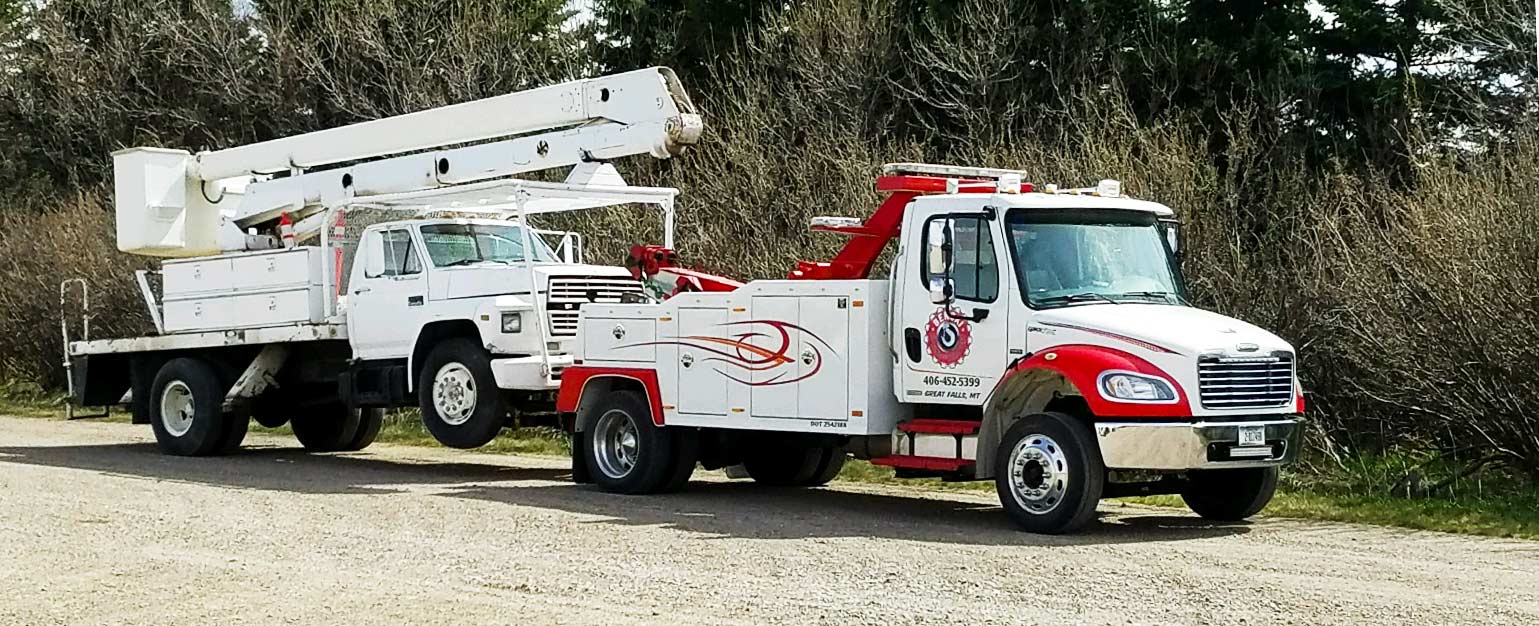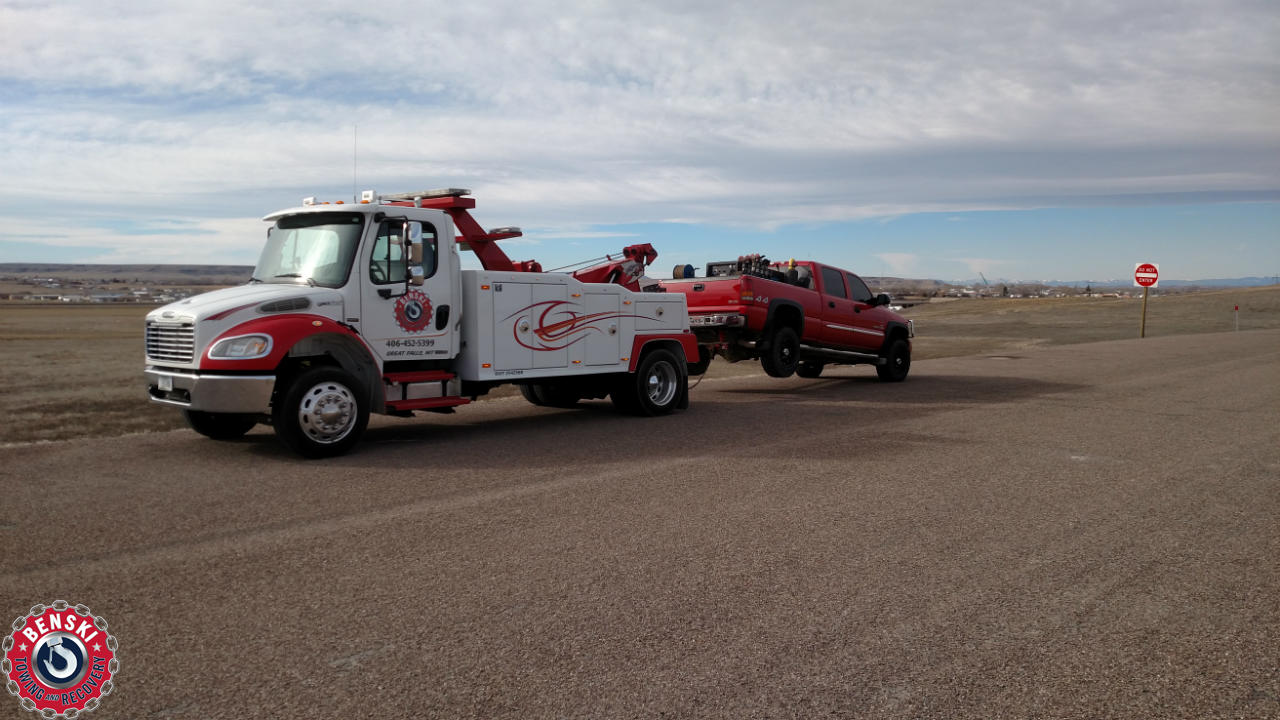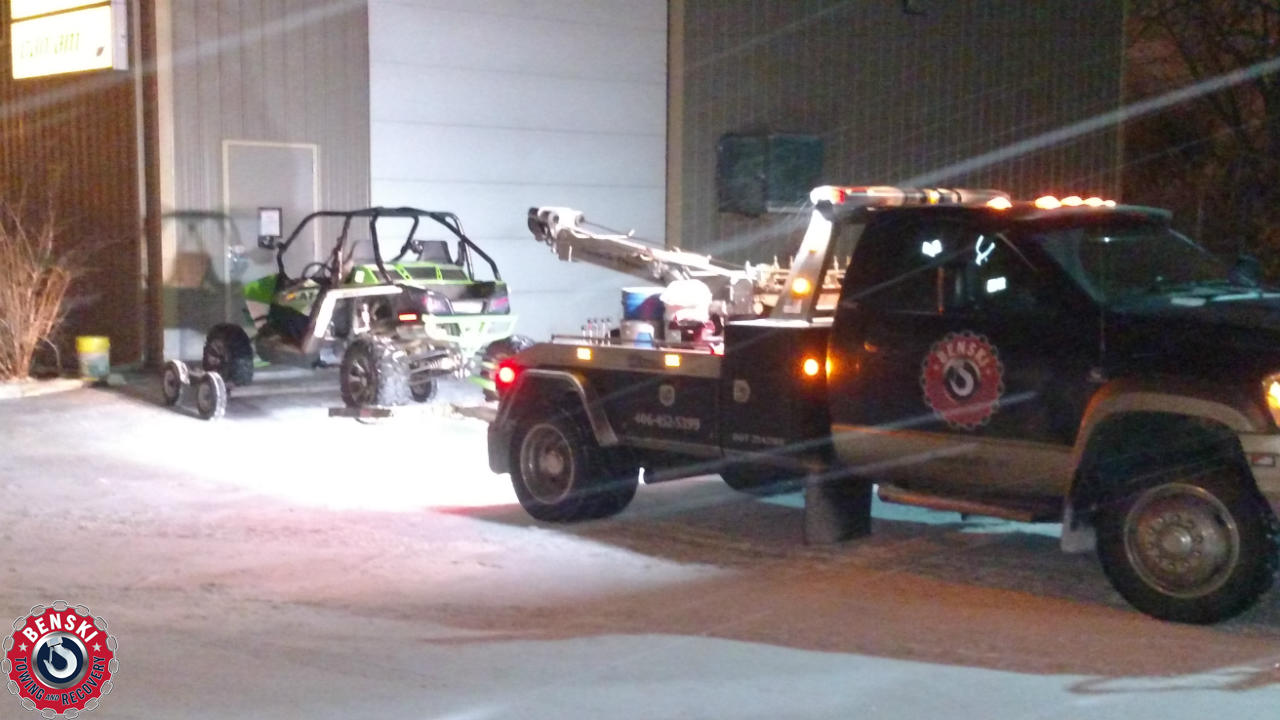Question: My car is all-wheel-drive, does it require a flatbed tow truck?
Answer: No. Conventional tow trucks are capable of lifting all wheels off the ground.
Question: My car has an automatic transmission, can it be towed with the drive wheels on the ground?
Answer: Probably, Most manufactures say yes, for a limited speed and distance.
Question: With so many makes and models, how do you remember each vehicles towing procedure?
Answer: Every manufacturer establishes towing guidelines, several companies compile these guidelines into an annual publication that is standard equipment for today’s tow truck driver.
Question: Is towing rough on my car?
Answer: No. Quite the opposite. Since your car is lifted by it’s tires, it is riding on your own suspension. And the tow trucks suspension absorbs most of the bumps.
Question: Do tow truck drivers have special training?
Answer: Yes. Our drivers begin by receiving intensive, specialized training at the WreckMaster. They are teamed with an experienced driver on the job until able to perform every aspect of the job with competence. Finally they are tested and certified by the Towing and Recovery Association of America. Drivers must also attend annual training courses to re-certify and to learn about new technologies in the towing industry.
Question: Do tow truck drivers need a special license?
Answer: No. Not for light duty tow trucks. However, our company requires drivers to have a flawless driving record and attend annual driving classes.
Question: Are tow trucks inspected for road worthiness?
Answer: Yes. Since our trucks are approved to tow for the Montana State Patrol, our trucks must pass a MSP inspection and a DOT inspection annually.
Question: Does it cost more to get towed on a weekend or a holiday?
Answer: Nope. At Benksi’s, we actually prefer the lighter weekend traffic because we can accommodate your tow quicker.
Question: My car is lowered, can it still be towed?
Answer: Yes, most lowered cars can be safely towed with a conventional tow truck.
Question: How many different ways are there to tow a car?
Answer: Many. Check out our Services page to learn more about how we can accommodate your towing needs.
Question: I’ve heard that it’s better to let my insured car go to the tow yard after an accident, why?
Answer: There are several reasons. 1. You do not have to pay the tow bill. 2. The insurance adjuster will inspect your car and other cars involved sooner to avoid storage fees. 3. No ugly wreck at your residence.
Question: Can you tow motorcycles?
Answer: Yes, we carry all needed equipment necessary to tow motorcycles without damage.
Question: Can you unlock my car with electric locks or side-impact airbags?
Answer: Yes. Our drivers are trained locksmiths who carry an ever increasing array of vehicle unlocking tools. NEVER let an untrained person attempt to unlock your vehicle! Your doors internal mechanisms and wires are very fragile.



